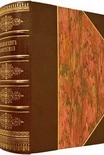Raft of Stars by Andrew Graff (ebook reader below 3000 txt) 📗

- Author: Andrew Graff
Book online «Raft of Stars by Andrew Graff (ebook reader below 3000 txt) 📗». Author Andrew Graff
“I think you should carry the barlow knife,” said Bread. “You know how to sharpen it better than me.”
“You sure?”
Bread nodded. Fish did know how to sharpen a knife well. He’d been a quick study. His grandpa had taught him how to tell if a blade was dull by looking at its edge in the sunlight. If the cutting edge reflected light, it wasn’t thin enough and needed touching up. Fish learned how to slice the blade across the stone until he raised a burr on one side of the edge. Once that burr was raised, he’d flip it and slice the other way. It took a while before he got the feel of when a blade became sharp against the stone. The sensation was a lack of friction, but then again, there seemed something spiritual to it as well, like divining water with a stick or sensing when a person was about to cry. It wasn’t science, it was knowledge. Fish’s grandpa had given him knowledge.
Fish picked up the barlow knife, opened it, studied its edge in the sunlight, and folded it closed. The knife felt reassuring in his hand. The blade was a clip-point style, which meant it was good for dressing game. It had jigged bone handles riveted in place. The nickel bolster that held the blade’s hinge was engraved with the letters TBB. Teddy Branson’s Barlow. Fish felt a pang of guilt for taking it without asking. But he was sure his grandpa would want him to have such a knife in the bush. It was one of the essentials. His grandpa told him that. A man can make it in the bush until he loses his knife, his grandpa said. The knife and the flint. Don’t ever lose those.
“You should carry the flint,” said Fish. “I’ll carry the blade to strike it. Together we’ll equal a campfire.”
Bread smiled at this wisdom and pressed the gray flint into the coin pocket of his jeans.
“This really is a good time,” he said again, and then his smile straightened. “What do we do with the revolver?” he asked.
To be honest, Fish didn’t want to see it, let alone carry it. When he took the thing out of its sack and placed it on the tarp, the weight of it in his hands went straight to his heart. He set it down quickly and didn’t want to pick it up again. His grandpa’s knife felt good. The dead man’s revolver did not. It gleamed in the sun, the satin-finished steel soaking up the same placid warmth as the boys, but there was dread in that beautiful Smith & Wesson, a kind of darkness in all that daylight.
Fish shook his head. “You carry it,” he said.
Bread picked it up and turned it over in his hands, and Fish could only imagine what he was thinking. The gun looked so massive in his hands, so out of place. Fish was surprised when a sort of brightness grew across Bread’s face, as if he’d just had a pleasant thought. Bread used his thumb to push forward the cylinder catch on the revolver’s side. He used his other hand to poke open the cylinder, and smacked his palm down on the ejector rod a few times. Fish knew the words for all the parts of guns from a book he got at the school library. He studied the history of firearms, the types of barrels, the locks and stocks. They seemed so wonderful then, the way it seemed wonderful the first time his dad went to war.
Bread shook the gun and six brass cartridges fell onto the tarp, one of them spent. He gathered up the five good ones and held them out to Fish with his palm facing downward. Fish tentatively held out his hand.
“Like the knife and the flint,” said Bread.
Bread closed the revolver’s cylinder and struggled to stuff the muzzle into his belt. Then he and Fish both looked down at the spent shell casing. Bread picked it up, held it in his palm. The casing was blackened where the bullet had been. Its primer was dented where the firing pin had struck it. It was no larger than a caterpillar. How could a thing so small send them out into the wild like this, into such exile? That’s the word Fish’s mom would use—exile—boys banished into the wild, to become wild themselves perhaps, like Ishmael, cut off from his father. Fish knew his mother would have insisted, of course, that Ishmael, despite his exile, wasn’t truly fatherless, would have reminded him of the “Father of All,” the miraculous springs of water in the desert. Fish wasn’t so sure. There had been no miraculous spring after his dad died, only a folded flag delivered by a man in uniform he’d never met before. Fish hated him. He hated that folded flag. And right now Fish found himself hating that small piece of spent brass Bread held in his palm. It made the river ugly. Fish shifted on his wet knees. Doubt poured through his body.
Fish surprised himself and yelled at his friend, “Would you quit sitting there like a fool and get rid of it already?”
Bread’s fist tightened on the spent shell casing.
“Why?” he said, menace creasing his forehead.
“Give it here, then, I’ll throw it in the river.”
Bread drew his fist away.
“I said give it here!” Fish was crying, and he hardly knew why. He lunged for Bread’s hand, but Bread pulled





Comments (0)